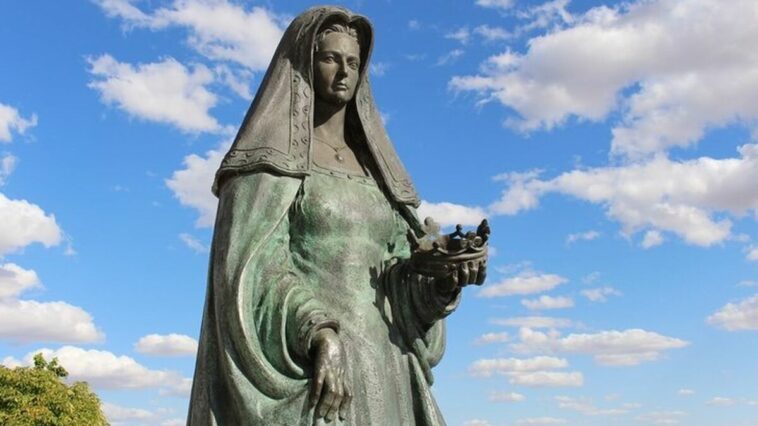Juana was recognized queen of Castile at the Cortes de Toro on January 11, 1505 while her father Ferdinand remained as ambitious regent.
Juana was not so crazy: The Queen of Castile
In the week of St. John, let us remember our neighbor Juana. Being born in front of the Royal Chapel, where the remains of Juana la Loca, her husband Felipe el Hermoso and her father Fernando el Católico are, I believe, have made me sensitive to the approach of those neighbors of my neighborhood, and especially of Juana I of Castile.
How bad is the ambition for power! Barbarities are committed to continue holding crowns and occupying thrones. History is full of examples. From the Egyptians of the pyramids to the tenants of La Moncloa.
And every time we look into our past we are assailed by doubts. We refer now to the period at the beginning of the 16th century when, after Isabella the Catholic had just died in 1504, Juana was recognized Queen of Castile at the Cortes de Toro on January 11, 1505, while her father Ferdinand remained as ambitious regent.
But these events took place. When Queen Isabella died, Ferdinand was left a widower until he married again Germana de Foix, whom he left pregnant while waiting for a new son who would be the heir.
He thinks of removing his daughter Juana I of Castile, by then already widowed, locking her up in Tordesillas in February 1509, arguing that she was not well in the head. One less hindrance. King Ferdinand’s greed was cut short when his son lost his second wife; his name was Juan and he only lived 24 hours. But more things happened.
Researchers found a document in the Archive of Simancas that casts doubt on the madness of Juana, at least in these early dates (1505), and reveals the ambitious intentions of his father.
It is a letter that Queen Juana addresses from Brussels to the Lord of Veyre, dated May 3, 1505: “…they judge me to be insane and they raise false testimonies against me, just as they raised them against our Lord…speak with my father’s king (Fernando) because what they publish is not only against me…. I know that the king my father has complaints about me, but this should be between father and sons. If I used my passion in any way, it was only out of jealousy…”
On another occasion Juana says this again, speaking of her father: “there is no lack of those who say that it pleases him to rule our kingdoms…”.
When Joan was widowed, a groom appeared to her, King Henry VII of England, who asked her father for his daughter’s hand. A new marriage and its possible offspring endangered the reign of the ambitious Ferdinand the Catholic, especially when he was expecting a son from his second marriage who died shortly after birth; it was April 1509; but, lo and behold, a few days later Juana’s suitor, Henry VII, also died. Another obstacle less.
The best thing to do was to leave her locked up in Tordesillas and thus the poor Juana was separated from the marriage market, who was, still and in spite of the children she had had and breastfed, very good looking. Juana was beautiful.
The sudden death of her own husband Philip the Handsome in September 1506 when she was only 28 years old is also a bit strange. Was it the cold water drunk after some games? Was it the plague that ravaged Burgos at that time? Was it something provoked by her own father-in-law Ferdinand who could not even see him? Another obstacle less for the ambitions of power of the Catholic king.
It is true that there are few doubts about Juana’s madness; but it is in question whether it was an illness that befell a woman who felt three times deceived by her father, by her husband and even by her own son Carlos.
- Facebook Messenger

